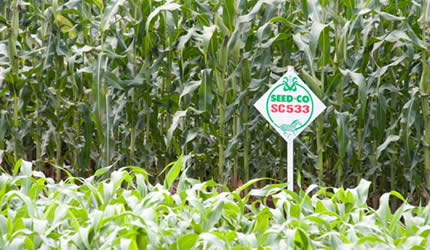Command agric must go beyond farming


Some authorities believe that agriculture starts and ends with farming. Yet in actual fact, farming is just a small, though important part of the agriculture value chain
Lloyd Gumbo : Mr Speaker Sir
Harvard’s Kennedy School of Government Professor, Calestous Juma, famed for agricultural innovation in Africa, in one of his writings said agribusiness in Africa needs to be nudged towards a tipping point from which it can take off. He noted that past efforts to promote agribusiness were not successful partly because of the narrow focus on farming.Interestingly, the 22nd African Union Summit of Heads of State and Government held in Addis Ababa, Ethiopia in January 2014 ran under the theme : “Transforming Africa’s Agriculture: Harnessing Opportunities for Inclusive Growth and Sustainable Development”.
The summit went beyond traditional ceremonial speeches as African leaders agreed that while the continent was endowed with an array of natural resources, agriculture remained high on the continent’s agenda given its potential to transform the continent.
Mr Speaker Sir, that Nobel prize-winning scientist Albert Einstein made profound remarks in 1930 when he said “an empty stomach is not a good political adviser”.
It is generally believed that the input of his remarks were that a desperate people cannot be expected to make rational decisions. But based on the continent’s drive towards transforming the agricultural sector, it is clear the agenda is to ensure that poverty is eradicated or at least reduced significantly by 2025.
Zimbabwe has of late experienced poor yields due to a number of factors among them drought, floods and lack of inputs regardless of those provided by the State.
As a result, the country has had to fork out hundreds of millions of dollars over the years to import food from neighbouring African countries, Eastern Europe and South America.
In order to counter this problem, Government has through Vice President Emmerson Mnangagwa deliberately introduced command agriculture that President Mugabe is expected to launch soon.
Command agriculture is expected to produce results in the next four seasons, with the main objective being to guarantee food sufficiency.
Government, the private sector and the financial services sector have come together to make sure this is a success.
Mr Speaker Sir, the generality of Zimbabweans have accepted this initiative in the hope that it will help the country produce enough food to the extent that there will be no need to import grain despite the projections that have already been made for the next few years.
The major challenge that we have faced as a country is that we tend to believe that agriculture is all about farming.
Some authorities believe that agriculture starts and ends with farming.
Yet in actual fact, farming is just a small, though important part of the agriculture value chain.
This deficiency was also evident during the land redistribution exercise, where major focus was put on farming and little on agriculture, which could be the reason the sector has not done enough to transform the economy.
The agribusiness value chain covers the whole gamut of agriculture, from input provision through access to finance, to knowledge generation and transfer to productivity, processing and packaging and most importantly, marketing.
Mr Speaker Sir, this is where as a country we have been found wanting, when our major focus has been on productivity and nothing on the other aspects of agribusiness as indicated above. The economic blue print Zim-Asset touches on this, with the clusters on food security and nutrition and the one on value addition and beneficiation.
It should be noted that we cannot say we have a complete agricultural sector with the capacity to transform the economy when our focus is just farming.
This is why some local supermarkets are full of South African agricultural merchandise, same with Mbare Musika, yet we produce the same goods here.
The leadership must be able to sincerely look at how the country can value add agricultural produce, which are just raw materials in the agribusiness.
As things stand, it appears unlikely that we will be able to export cereals in their raw form because our neighbouring countries are producing more than us.
Besides, even if they were to have poor yields, we would not derive much from exporting agricultural produce in their raw form.
Mr Speaker Sir, we stand a better chance of exporting beneficiated agricultural products to other African countries amid indications that some of them are actually importing value-added agricultural goods from Europe on a daily basis.
Higher and Tertiary Education, Science and Technology Development Minister Professor Jonathan Moyo described the importance of agriculture to Zimbabwe when he recently tweeted: “Zimbabwe’s Economy can only turnaround through agriculture for export. Land is the Economy and the Economy is Land.”
That is exactly where the thrust should be, instead of focusing on production for subsistence only.
Government should be at the forefront of demystifying agriculture as farming. That narrowly perceived definition of agriculture could be the reason not much support has been given to agribusiness beyond the availing of inputs to farmers.
Government should come up with mechanisms of how to market agricultural products — both beneficiated and raw — as an incentive for farmers to grow specific crops.
For instance, no one forces tobacco farmers to grow tobacco today but they are self-motivated because they know that there is a ready market for the crop.
With Government implementing the command agriculture policy, it is important that the focus is elevated from mere farming to the whole agricultural value chain.
Mr Speaker Sir, it should be a thing of the past that grain farmers are paid for their produce two years after delivering their crop to the Grain Marketing Board.
If this continues, then there are high chances that farming of grains for commercial purposes will go into ruins as farmers will opt for tobacco even in areas that are not conducive for the crop.
Zimbabwe has arable land and hard working farmers who have the capacity to produce food for local consumption and export.
As noted by Professor Moyo, that is the only way the agricultural sector can help transform the economy.
Feedback: [email protected]










Comments